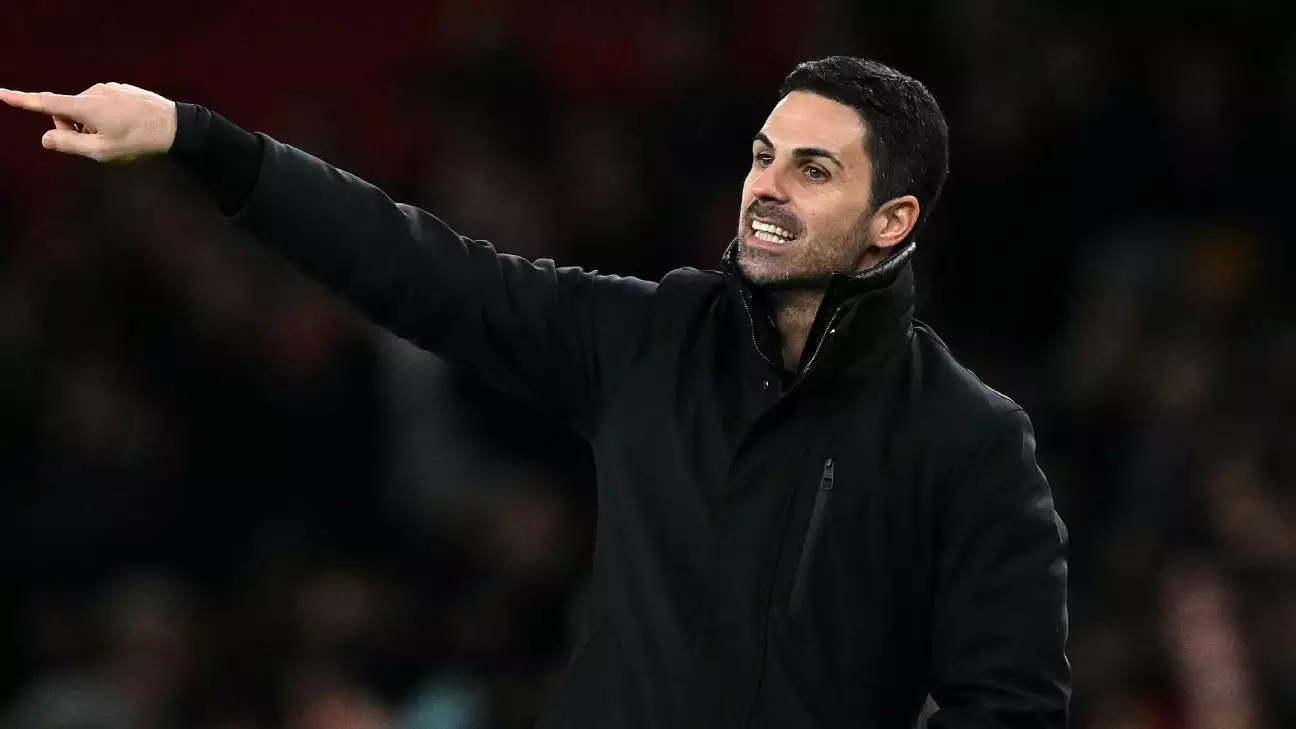In the whirlwind of competitive football, adaptability is often a key determinant of success. Arsenal’s recent 2-0 defeat in the Carabao Cup semifinal against Newcastle United highlighted this notion profoundly. The loss, characterized by a series of squandered opportunities, could prompt reflections on how external variables, such as different playing equipment, play a pivotal role in a team’s performance. Mikel Arteta, manager of Arsenal, pointed to the unique challenges posed by the competition’s ball as a significant factor in his team’s underwhelming display. A switch from their usual Nike ball to a Puma variant introduced a new level of complexity that appeared to disrupt the team’s rhythm and execution on the pitch.
Arsenal’s inability to capitalize on goal-scoring chances was underscored by their staggering expected goals (xG) figure of 3.12—the highest recorded by a Premier League team in a match without scoring this season. This statistical anomaly not only emphasizes the team’s offensive struggles but also underscores a disconnect between intent and execution. The psychological ramifications of such a performance can’t be overlooked either. As the adage goes, the hardest skill in football is scoring, and with mounting chances failed to convert, the Gunners could potentially grapple with confidence issues moving forward.
Arteta’s reflections on the distinctive nature of the Carabao Cup ball serve as a reminder of the importance of adaptability in sports. Drawing parallels with Pep Guardiola’s past complaints about the ball during his tenure at Manchester City, Arteta’s admission reveals a broader issue that transcends individual teams. The former coach’s assertion that “to score with that ball is a miracle” highlights a recurring theme—the potential for specific equipment to adversely affect performance. This backdrop of shared experiences reinforces the notion that maintaining consistency in training and preparation is vital when facing unexpected challenges.
Despite the narrative of disappointment, both Arteta and his squad have an opportunity to reassess and confront their challenges head-on. The forthcoming return leg on February 5 presents not just a chance for redemption but also a platform to implement learned lessons from this encounter. Arteta’s emphasis on tactical adjustments and focus on the psychological aspects suggests a proactive approach to rebuilding confidence within the squad.
Arsenal’s exit from the Carabao Cup remains a painful reminder of the delicate balance between physical preparedness and adaptability to unforeseen variables. While external factors like equipment can influence outcomes, the Gunners must emphasize resilience and adaptability as they move forward. In football, as in life, the key to overcoming adversity lies in the ability to adapt and learn from setbacks.

